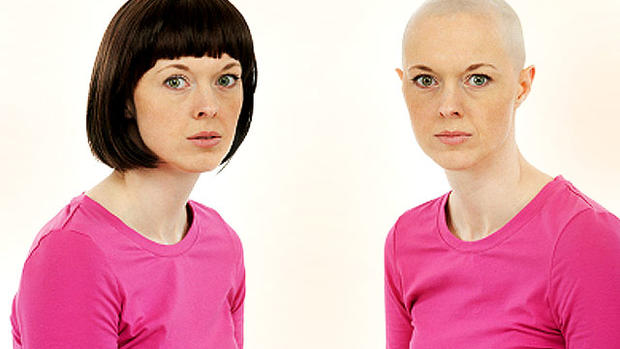Most breast cancer patients who get preventive double mastectomy don't need it
Most breast cancer patients who opt for prophylactic mastectomy -- surgery to remove their healthy breast as a precaution -- are actually at very low risk for breast cancer recurrence. A new study, published today in JAMA Surgery, found that as many as 70 percent of women who opt for contralateral prophylactic mastectomy -- removing both the cancerous and normal breast -- don't actually need it because their chance for developing the disease again is quite low.
The paper, from researchers at the University of Michigan Comprehensive Cancer Center, indicates a growing trend in the surgical over-treatment of breast cancer.
"When you receive a breast cancer diagnosis it's obviously a very emotional and anxiety-provoking time," Dr. Tari King, deputy chief and director of research for the breast surgical service at Memorial Sloan Kettering Cancer Center, told CBS News. "And the decision about what kind of surgery you're going to have is the first decision women have to make." King did not write the paper, but works with the co-author.
For the study, researchers surveyed 1,447 women who had been treated for breast cancer and who had not had a recurrence. They found about three-quarters of patients expressed worry that their breast cancer would return. Around 8 percent of women underwent a contralateral prophylactic mastectomy, while 18 percent considered having one. Women with higher education levels and those who had undergone an MRI before treatment were more likely to opt for the more extensive surgery.
"They want to choose the surgical procedure that they think gives them the lowest possibility of recurrence and the greatest chance of surviving their breast cancer," said King. "But...when we tell them that removing their normal breast won't make them live longer and there is no survival benefit, there's a disconnect."
According to King, in the 10 years after initial diagnosis, only about 3 percent of breast cancer patients will actually have a cancer develop in their healthy breast.
Doctors typically recommend breast cancer patients who test positive for the BRCA 1 and BRCA 2 gene mutation consider undergoing contralateral prophylactic mastectomy, because they are at significantly higher risk for breast and ovarian cancer. However, breast cancer incidences related to these gene mutations only account for about 10 percent of all diagnosed breast cancers.
The surgery gained widespread attention in 2013 when actress Angelina Jolie revealed she had it done after learning she carried a gene mutation that put her at extremely high risk of developing breast cancer.
Even though the surgery is only indicated for a small percentage of women, statistics indicate that contralateral prophylactic mastectomy is on the rise -- from 39 to 207 per 1,000 mastectomies between 1998 and 2008, according to a study published in the journal Plastic Reconstructive Surgery.
For women who aren't at high risk for recurrence, a number of factors beyond fear have contributed to this trend. More often than not, breast reconstructive surgery is available to patients at the same time as mastectomy. Additionally, health insurance companies are required to cover reconstructive surgery for breast cancer, a result of the Women's Health and Cancer Rights Act of 1998.
King says more must be done to explain the risks associated with contralateral prophylactic mastectomy, which include post-surgical chronic pain, loss of sensation in the breast and skin, as well as decreased sexuality. She said patients need to be reminded that the surgery won't guarantee fears of recurrence will dissipate.
"Oftentimes women say they still worry about breast cancer even if they've chosen to remove both breasts," said King. "It's not always guaranteed that the choice you make to remove both breasts is really going to make you feel as good as you think it might at the time that you're making that decision."
